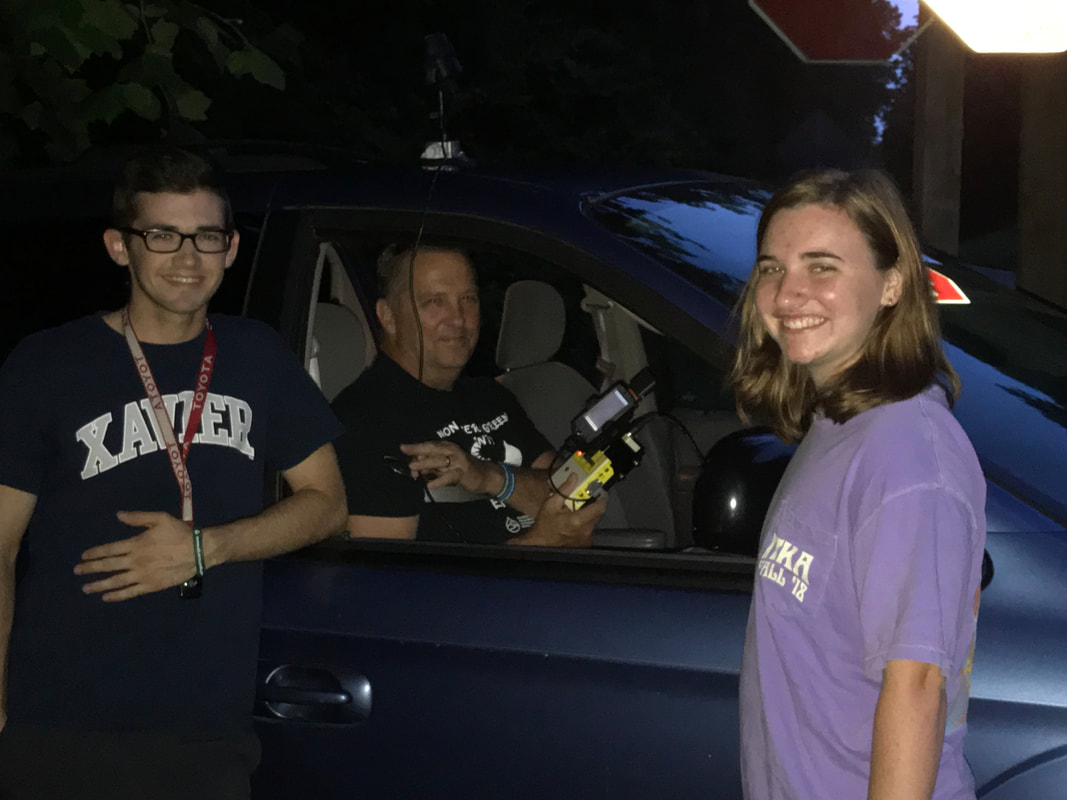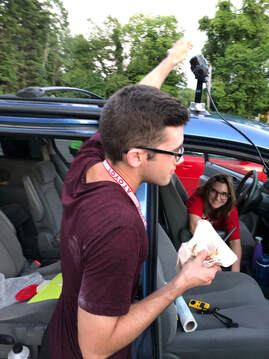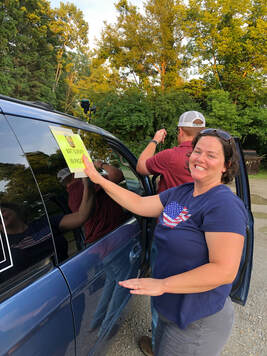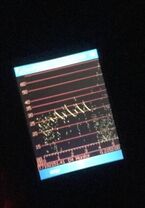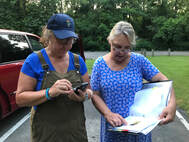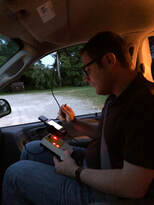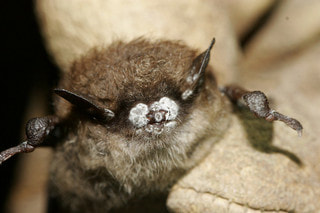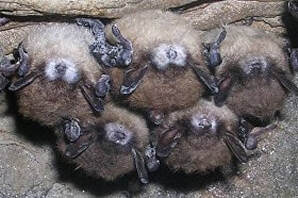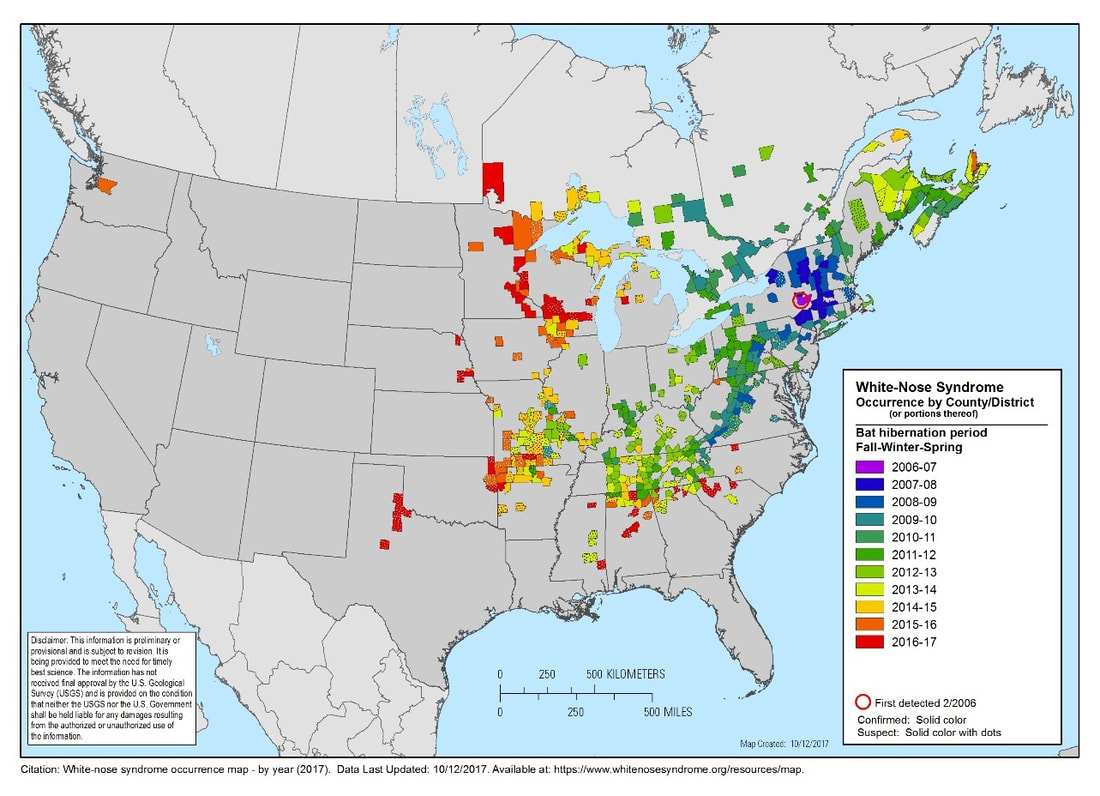|
It's A Rap! Warren County Soil and Water Conservation District wishes to thank our Earth Team Volunteers, Staff, Interns, Partnerships and OCVN's for assisting with Bat Acoustic Surveys this past July. We will highlight some of our results at a "Tech Free Tuesday" Event held on August 6th at Landen Deerfield Park. Come learn about our beautiful, native bats, real bat biofacts and build a batty craft! These programs are FREE to the public! Programming starts at 10:00 am. Address: Deerfield Township 2258 W. St. Rt. 22/3, Maineville, Ohio 45039 What Bats Do For Us One of the most important things bats do for us is consume vast amounts of insects each night; many of these insects are damaging agriculture pests. In fact, pregnant or nursing mothers of certain bat species can consume their body weight in insects each night. Scientists estimate that throughout the United States bats help save farms $3.7 billion a year in reduced crop damage and pesticide use. Bats also save over $1 billion in the corn industry alone. Ohio's bats are "insectivores". Controlling the pest population is not the only thing bats do, they are also pollinators of certain plants and disperse seeds. "Bats are an important part of the ecosystem and do more for us than we even realize." - Sidney Thomson Acoustic Bat Survey photos from the Caesar Creek/Warren County route that also ventures into Clinton and Greene Counties. What You Can Do Warren County Soil and Water Conservation District partners with the Ohio Division of Wildlife (ODNR) to perform acoustic bat surveys in July; this is a perfect way for people to get involved in tracking populations of bats. In addition, ODNR trains others, county-wide, to perform bat monitoring surveys throughout Ohio. Look on ODNR's website for more information. Another great way to help bat populations is to build a bat house and count the number of bats that use the house. Being mindful and minimizing the disturbance of bat habitats or places that bats are known to hibernate helps their over-all population and ecosystems. A big factor that increases bat populations is to avoid the possible spread of White Nose Syndrome by people. Bats slowly reproduce, female bats typically have one pup at a time, so it is important for us to do whatever we can to protect our bats.
Data from this project allows the Division of Wildlife to monitor population changes for bats through long-term assessments. As potential threats to bat populations increase in Ohio (e.g., White-nose Syndrome, habitat destruction), it is imperative that we continue to monitor and assess our Ohio bat populations. White-nose syndrome (WNS) is a disease caused by a fungus that affects bats. It is considered one of the worst wildlife diseases in modern times; the fungus, called Pseudogymnoascus destructans or Pd for short, has killed millions of bats across North America. Pd grows in cold, dark and damp places; it attacks the bare skin of bats while they are hibernating in a relatively inactive state. Pd sometimes looks like a white fuzz on the faces of bats, As the Pd fungus grows, it directly causes changes in bats, making them become more active than usual. Bats with white-nose syndrome may do strange things like fly outside during daytime in the winter. The infected bats burn up fat that is crucial to survive the winter. Besides, Ohio's Bats are nocturnal. In 2007, Biologists first noted bats were sick and dying from white-nose syndrome in caves near Albany, New York. Cave explorers had taken a photo of bats with a white powder on their noses the year before in this same area. Thus, white-nose syndrome has been in North America since at least 2006. WCSWCD Volunteer Opportunities: https://www.warrenswcd.com/volunteer-opportunities.html Acoustic Bat Survey photos from the Little Miami State Park route. Other WCSWCD Wildlife/Ohio's Bats Blog publications: https://www.warrenswcd.com/education-connection-a-blog/sleep-all-day-stay-out-all-night-no-wonder-we-love-our-ohio-bats https://www.warrenswcd.com/education-connection-a-blog/help-protect-bats-and-their-habitats Authors and Contributors; Sidney Thomson, Ben Haynes and Marta Farrell
1 Comment
|
Details
Author:
|
|
|
Contact:PHONE: (513) 695 - 1337
EMAIL: [email protected] HOURS: Monday - Friday 7:30am - 4:00pm (except holidays) Connect:Warren County Soil & Water Conservation District Copyright © 2016
Warren SWCD Privacy Notice. Emails are serviced by Constant Contact. Constant Contact's Privacy Notice. |
